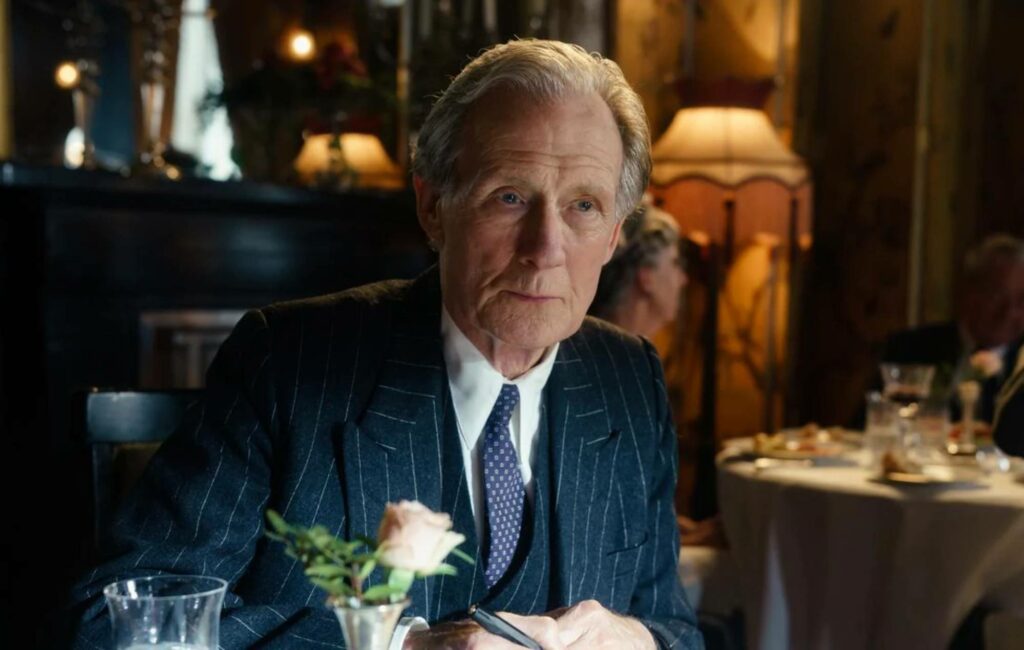Kazuo Ishiguro on ‘Living’: ‘This film’s message is still relevant today’
Screenwriter Kazuo Ishiguro on creating one of 2022's most quietly devastating dramas
By Nick Reilly

As Living hits cinemas, screenwriter and Nobel Prize winning writer Kazuo Ishiguro has discussed how the film, set in the heart of 1950s London, still has far-reaching parallels with today’s society.
Directed by Oliver Hermanus, the film is an adaptation of 1952’s Ikiru and stars Bill Nighy as Mr Williams, a straight-laced bureaucrat who tries to seek meaning from his life when he is suddenly diagnosed with a terminal illness.
Nighy’s devastating turn as Williams has seen him tipped for an Oscar, while the film’s faithful representation of post-war Britain has also won plaudits.
But despite being set 70 years ago, Ishiguro believes that the film’s themes of frustration and the battle to find meaning in life are more relevant than ever today.
“Akira Kurosawa’s Ikiru meant so much to me when I was growing up, but I thought the film could be very meaningful for people today,” he told Rolling Stone UK.
“The film shows us people in an office building [London’s County Hall] where one department doesn’t really know how it connects up to the next and that felt like a metaphor for how people have to live now,” he explained.
“They have to work long, long hours in jobs where they don’t know how it relates to the outside world and the meaning of their contribution. Capitalism has made things big and compartmentalised, so it’s not always very obvious what people are contributing to. They’re just told to do this thing and hope it connects up.”
He added: “I’ve always felt that Ikiru could address a feeling I suspect is very prevalent for today’s generation. How do you find meaning when you’re being forced to work these long hours that are grinding you down and you just don’t really see what the point is?”
The film also provides a “study of a certain type of Englishness”, Ishiguro explained. Nighy’s character Mr Williams is seen to be largely typical of the time, largely eschewing displays of emotion and affection for a cold and distant stiff upper lip approach.
“It could also be a study of a certain type of Englishness,” he said.
“It’s just the way people were at that time. For that generation they’d just come through the Blitz, their children dying in Europe and London people dying in their beds. You had to have a stiff upper lip, otherwise you wouldn’t have come through it!
“I’m not passing judgment but I find that kind of Englishness like a metaphor for a certain thing we have inside us. There’s a part of us all that has that. I suppose it’s shorthand for a set of things, a tactic for shielding yourself from things and dignity against terrible things. We’ve developed other ways of hiding.”
Despite the film’s central theme of facing impending mortality, Ishiguro went on to explain how he was determined that the film’s central core would not become overly mawkish and sentimental.
“It’s easy to make people cry with some obvious tragedy, but it’s much more of a challenge to move them when something is so complex,” he said.
“We’re not asking audiences to cry because some guy is dying of cancer, we wanted to ask people to shed tears of happiness. The film’s message is basically saying you don’t need to turn your life around by changing who you are, you don’t have to achieve something so fantastic that everyone is going to applaud.
“You can accept the very limited person you are, you can accept your limited world and the modest hand you’ve been dealt, but you can make all the difference by pushing a little bit within those confines. And that makes a crucial difference between being deadened by life and living to the full.”
He added: “You just have to find some meaning, and I found that very inspiring in the Kurosawa film and it’s been a big influence on my whole life. I never dreamt I’d end up in the position I am now, when I was 18 or 19 I thought my life was going to be something humble.”
The film’s overall message, Ishiguro explained, is one of hope.
“Those bureaucrats like Mr Williams who worked in County Hall, they helped to build the welfare state in Britain and it’s one of the great achievements,” he said.
“Out of all that rubble and all that poverty, centuries of class, it’s miraculous that Britain built a welfare state and a more socialist society. For all the faults we still have with it, it’s a huge achievement. The original Kurosawa film is very pessimistic and I wanted ours to be more hopeful. These ordinary people did achieve change, they somehow got it together and changed Britain. There’s hope in that.”
Living is out in cinemas today (November 4).
